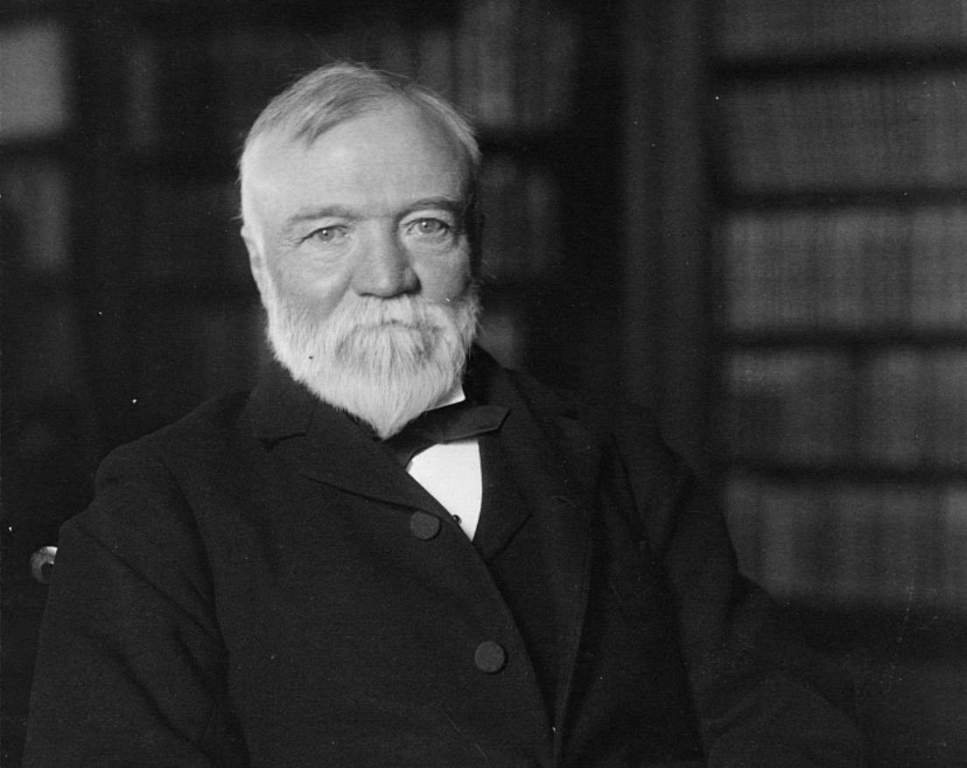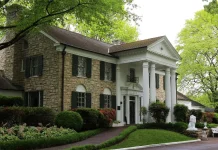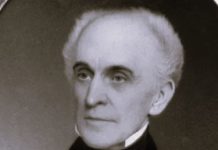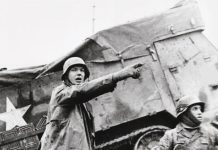How did Andrew Carnegie make his fortune? Andrew Carnegie was a famous American iron master, manufacturer, and philanthropist. He was born in Dunfermline, Scotland, on November 25, 1837. None, not even the mighty makers of their own fortunes, began close to absolute zero. Certainly, none have owed success not to fortunate speculations but to steady labor, sagacity, and self-culture, the natural working of the highest powers on opportunities open to all and less to him than to most. His father owned a small handloom business, which was closed in 1848 by the emergence of steam. He then emigrated to the United States and settled in Allegheny City, Pa.
The 10-year-old child here became a bobbin boy for 20 cents a day. In a few months, his alertness led to his transfer to the engine room, and his penmanship and arithmetic led to him being able to do clerical work as a clerical assistant. Next a telegraph messenger boy at Pittsburg (with a mother and younger brother to support him from his slender wages), he promptly mastered telegraphy, was soon given a place as an operator, and won himself extra earnings and experience in composition as a newspaper telegraph reporter.
Hence, his superior fitness brought him to the post of telegraphic train dispatcher to the Pennsylvania R.R.; then secretary to its general superintendent, Col. Scott; and in 1860, when his chief became vice president, Andrew Carnegie was made superintendent of the Western Division. His business fortune had opened with the tentative adoption of the Woodruff sleeping car system by the road through his agency, for which he shrewdly borrowed money. Due to his expert knowledge, it was an investment, not speculation. His dividends were partially invested in oil lands around Oil City, which were also chosen with equal judgment.
At the outbreak of the war, Col. Scott was made assistant secretary of war, and Andrew Carnegie was given charge of the eastern military railroads and telegraph lines. In this department, there was no complaint or scandal and no breakdown except Mr. Carnegie’s health from overwork. On the Union side, he was the third man wounded while removing obstructions from the Washington tracks. Already a small capitalist, in 1862, the Pennsylvania Road’s experiments in replacing wooden with iron bridges led him to forecast the future monopoly of the latter. He organized the Keystone Bridge Works, which built the first iron bridge across Ohio. Increasing their profit by furnishing their own iron, he entered the field that made him the most famous industrial sovereign.
The first step was the erection of the Union Iron Mills, furnaces, and rolling mills; the last, after inspection of the Bessemer process in England, was to establish it in this country in 1868. From then on, plant aggregation has been swift. This is until they have dominated their class and become one of the chief industrial factors of the entire business world in this great age.
Henceforth, by 1888 he had acquired a controlling interest in his foremost rival, the Homestead Steel Works, and in seven other immense establishments centered around Pittsburg; in 1899 he consolidated all these into one giant structure, the Andrew Carnegie Steel Company; and in 1901 he retired from business life, transferring his company at a valuation of $500,000,000 to be merged into one still vast, the United States Steel Corporation, formed by J. Pierpont Morgan.
His United States residence is in New York; his summer residence is at Skibo Castle, in Scotland’s extreme north. Such supreme success, achieved in a struggle with the world, is, of course, the result of a supreme individual genius not to be taught or explained. However, as the amount of work one man can do unassisted is a trifle, the chief instrumentality is always the faculty of an organization.
Andrew Carnegie himself once said that the organization has the business; that if he stripped of all his material property and business connections but left his organization, in four years he would have re-established himself. But the organization is simply the men who work on it with their capacity for selecting capable subordinates. In addition, they understand public needs and the means of supplying them. This leaves the process of creating and maintaining it no closer to a solution than before. In summary, it means a highly accurate judgment of men, resulting from an intuitive gift informed and tested by long experience. As men are not pawns, it implies the power of persuading them and keeping them in alliance as well.
Always a generous and helpful man, he was beginning, just a few years before his retirement, a new career dedicated to public service. To this existence, he will owe enduring remembrance. After all, it would have had steel from some source, even if it was less cheap, so the mere businessman would have been forgotten by another generation. However, he could not have received it from lesser men, and he would never have received it from anyone, since the splendid, judicious, and permanent gifts which he has endowed cannot be rendered obsolete or harmful by any change in social ideals.
No one has ever returned to the public what he had (to his own benefit) taken from the public. This is his own expressed conviction of duty: that surplus wealth is a sacred trust to be administered for the highest good of the people, and that sometimes the man who dies possessed of millions free and ready to be distributed will die disgraced.
But he declares that indiscriminate giving is mostly a form of mischief. He also declares that no person and no community can be permanently helped except by their own cooperation. Therefore, every gift of his to a community is conditioned on the latter supporting it; and all those to institutions are thought out and so bestowed that they forward the work without impairing the springs of public interest or the ties to the public, which must after all be their permanent stay.
Generally, these gifts aren’t for charities in the current sense of relief from material distress, for which human brotherhood should suffice, but for mental and spiritual cultivation that will lift communities out of a downward spiral. An apparent exception, which, however, is not charity but justice and business sense, is the endowment of $4,000,000 given for an annuity fund to Homestead workers. The remainder of his benefactions may be broadly divided into institutions for research and the discovery of fertile new ideas; those for teaching the best of ideas and their practical appliances already known; and those for storing the results of knowledge and creation and distributing them to the public—in other word, universities, colleges, technical schools, and libraries.
Even the organs he has presented to several hundred churches may fall into this category; as he genially remarked, he is willing to endorse his organ’s utterances without reservation, but not those of his preachers. The total amount of his benefactions to date is upward of $70,000,000, of which some $55,000,000 have been given in the United States, and much more is ultimately assured.
The greatest single foundation will be the Andrew Carnegie Institute at Pittsburg, an enormous technological school with a library, art gallery, and every imaginable accessory. This is the people’s college of what he thinks is the coming type. It has received $10,000,000 already and is expected to receive $25,000,000 in total.
Next is the Andrew Carnegie Institution at Washington, which promotes original research and enables original workers to devote their whole time to study, experiment, and creation—perhaps his most valuable benefaction ultimately, since new ideas are at once the scarcest and the most valuable items of the world’s income, and the work of one great man outweighs that of 10 generations of small ones.
Of the others, perhaps the most useful, considering the work and the chief, is the gift of $600,000 to the Tuskegee Normal and Industrial Institute in Alabama, conditioned on the trustees using enough of its income annually to free Booker T. Washington, its head, from money cares and the need of drumming support for his college the rest of his life, and enable him to devote his whole tune to this noble institution.
Moreover, sixty-five libraries in New York have received $5,200,000; one in St. Louis $1,000,000, and two in Detroit and San Francisco $750,000 each; libraries at Homestead, Braddock, and Duquesne $1,000,000; and universities in his native country $10,000,000. Andrew Carnegie has also won fame as an author, in addition to his other distinctions, and public appreciation has been evinced in the emphatic and unfeigned form of a large, unaided sale. Andrew Carnegie died on August 11, 1919, aged 83, in Lenox, Massachusetts, U.S.
His first works, Notes of a Trip Around the World (1879) and Our Coaching Trip (1882), were printed first for private circulation but published after the acclaimed Vol. 4–15 pressure for private copies. An American Four-in-Hand in Britain (1883) and Round the World (1884) followed, but his greatest success was ‘Triumphant Democracy (1886), which sold 40,000 copies within two years. ‘The Gospel of Wealth (1900) and ‘The Empire of Business (1902) maintain his reputation as a clear, forcible, and interesting writer.
Read More: Transmission of Shadows – The Memorable Inventors of Television







